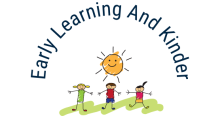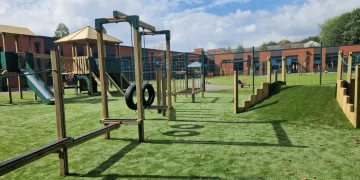Choosing the Right Kindergarten for Early Learning: A Parent’s Guide

When it comes to selecting the kindergarten for your child, it’s a crucial step in their educational journey. The early learning experiences that they have during this time can greatly impact their social and cognitive development and lay the foundation for future academic success. With many options available, it can feel overwhelming to find the perfect kindergarten for your child. This guide is designed to provide you with the knowledge and tools to make a decision about your child’s kindergarten education.
Understanding Your Child’s Needs
Each child is unique, and It’s important to understand their needs in order to find the right early-learning kindergarten. Consider their personality, learning style, and any specific requirements they may have. Some children thrive in an environment, while others may benefit from flexibility and hands-on learning opportunities. By identifying your child’s strengths and weaknesses, you’ll be empowered to choose a school that caters to their needs.
Exploring Different Kindergarten Philosophies
Kindergartens can follow philosophies, so it’s important to familiarise yourself with them in order to find the best fit for your child. Here are a few common philosophies;
Montessori: Montessori kindergartens emphasize hands-on learning experiences, freedom of choice, and individualised instruction. They promote independence. Encourage children to learn at their own pace.
Waldorf: Waldorf kindergartens prioritise play, artistic expression, and a holistic approach to education. They believe in fostering a connection with nature and creating a learning environment.
On the other hand, Reggio Emilia-inspired kindergartens focus on creativity, collaboration, and student-led projects. They see children as participants in their learning journey and value their interests and perspectives.
Both philosophies have their approaches to early education. Understanding these approaches will help you align your child’s needs with the methodology.
Visiting Potential Kindergartens
It’s crucial to visit kindergartens to get an experience of the environment and observe how teachers interact with students. Pay attention to the atmosphere, cleanliness, and safety measures in place. Observe how teachers engage with students and whether they create a nurturing and stimulating learning environment. Also, take note of the resources such as books, toys, and educational tools. An equipped kindergarten can greatly enhance your child’s learning experience.
Assessing Teacher’s Qualifications and Experience
Teachers play a role in your child’s early learning journey; therefore, it is important to evaluate their qualifications and experience. Inquire about the background certifications they hold as well as any ongoing professional development they engage in.
Experienced educators who have a passion for childhood education can greatly influence your child’s learning and development. It’s also important to take into account the teacher-to-student ratio to ensure that your child receives attention and support.
Take Curriculum into Account
Different kindergartens follow various curriculums. So it is crucial to assess them in order to align with your objectives for your child. Look for a curriculum that strikes a balance between learning and emotional development. A comprehensive curriculum should include activities that encourage literacy, numeracy, problem-solving abilities, critical thinking, and creativity. Evaluate how the curriculum incorporates play-based learning and hands-on activities, as these are essential for a child’s growth.
Assess Opportunities for Parent Involvement
Involvement plays a role in a child’s educational success. Find out how the kindergarten encourages parents to participate and if they offer opportunities for involvement. This may involve parent-teacher meetings, workshops specifically designed for parents, volunteering options, or events where parents can actively engage in their child’s journey. A kindergarten that values and fosters involvement establishes a partnership between home and school while enriching your child’s educational experience.
Consider Location and Practical Aspects
When selecting a kindergarten, practical factors, like location and logistics, should not be overlooked. Consider how close the school is to your home or workplace, as a long commute can negatively affect your children’s well-being. Take into account the school’s hours, whether they match your family’s schedule or not. Additionally, ask about transportation options like school bus services if needed.
Conclusion
Selecting a kindergarten is a decision that shapes your child’s educational journey. By understanding your child’s needs, familiarising yourself with philosophies, visiting potential kindergartens, assessing teachers’ qualifications, considering the curriculum and opportunities for parent involvement, and evaluating location and logistical aspects, you’ll be well prepared to make an informed choice. Remember that finding the perfect kindergarten sets the stage for your child’s love of learning and academic achievement.










